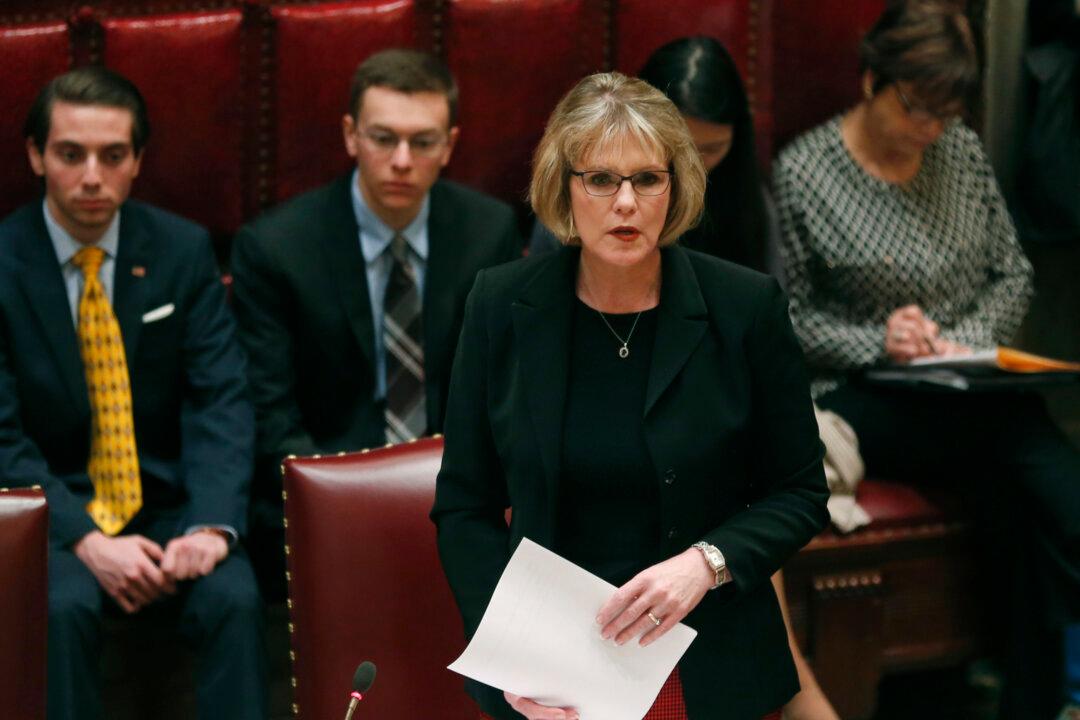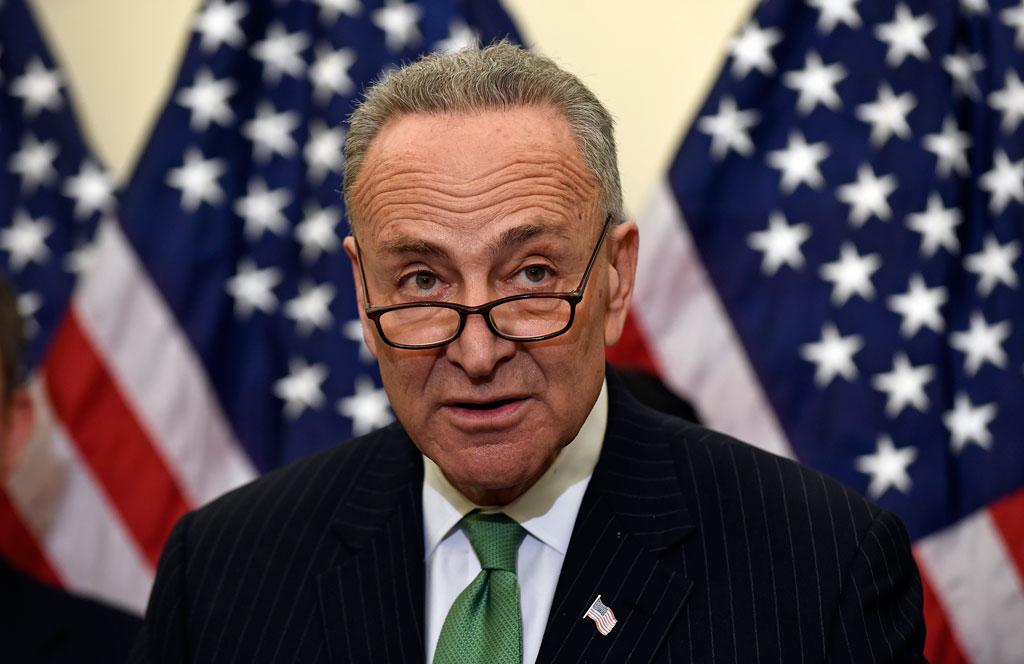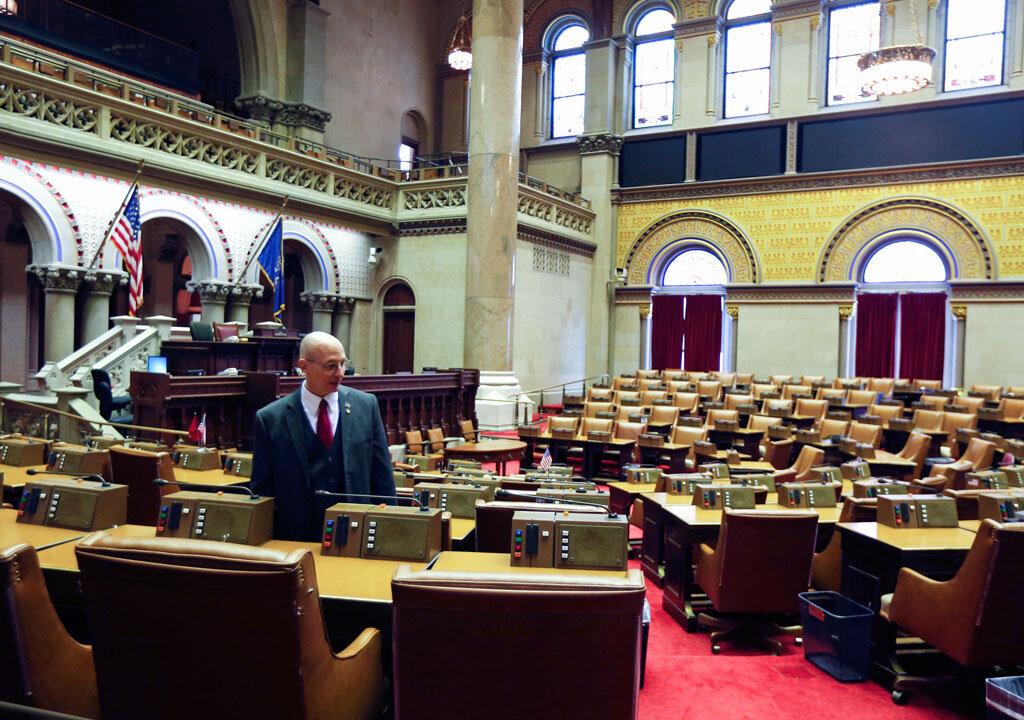ALBANY, N.Y. —New York’s attorney general has called for a host of reforms to end Albany’s centuries of public corruption and repeated his request that Gov. Andrew Cuomo authorize him to prosecute those cases.
Attorney General Eric Schneiderman, in a Monday night speech at a Citizens Union forum at New York Law School, called for a ban on outside income for state legislators. He said recent ethics reforms have followed the usual pattern to simply “tinker at the margins” following a scandal and thereby quell outrage until the next scandal.
“Inviting legislators to have outside jobs invites corruption,” Schneiderman said. He proposed raising their $79,500 pay for what’s considered part-time work to somewhere between the $112,500 New York City council members are paid and the $174,000 annual salaries of congressmen.



